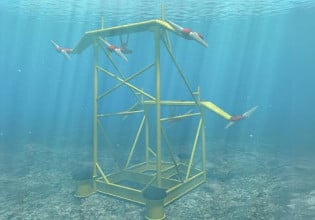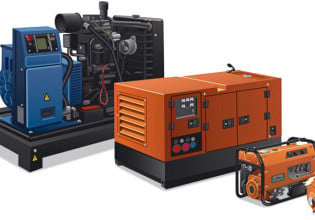ANSI/EESCC Energy Efficiency Standardization Roadmap Draft Open for Comment
The American National Standards Institute (ANSI) Energy Efficiency Standardization Coordination Collaborative (EESCC) has released for a 45-day public comment period the EESCC Standardization Roadmap V1.0 draft, which outlines 116 action-oriented recommendations to advance energy efficiency in the built environment through standards and conformance activities. U.S. experts on energy efficiency-related issues, members of the standardization community, and other affected stakeholders are invited to submit input on the EESCC Roadmap V1.0 by March 15, 2014. The draft is being issued for public comment to provide an opportunity for review and feedback on the EESCC's findings and recommendations before final publication in mid-2014.
Advancements in energy efficiency can help bolster the economy, job creation, and U.S. competitiveness by powering economic activity with less energy and at less cost. According to estimates from the U.S. Department of Energy (DOE), our nation’s buildings account for more than 70 percent of total U.S. electricity use and roughly 40 percent of the nation’s total energy bill at a cost of $400 billion dollars per year. With 20 percent or more of this energy wasted, comparable reductions in energy could save an estimated $80 billion annually.
Intended as a resource for U.S. industry, government, and consumers, the EESCC roadmap identifies areas where additional standardization activities are needed to advance energy efficiency within the built environment, and outlines recommended timelines for action. Primary focus is given to U.S. standardization activities and the standards and conformity assessment activities that have direct applicability to the U.S. market.
The EESCC Roadmap V1.0 outlines 116 recommendations aimed at advancing energy efficiency within five distinct areas: Chapter One identifies 40 recommendations in the area of building energy and water assessment and performance standards. Chapter Two details 9 recommendations to advance system integration and systems communications. Chapter Three puts forth 20 recommendations in the area of building energy rating, labeling, and simulation. Chapter Four identifies 31 recommendations to advance evaluation, measurement, and verification (EM&V). Chapter Five lays out 16 overarching recommendations to advance workforce credentialing for the energy efficiency field.
In order to be considered, comments on the EESCC Roadmap V1.0 draft must be submitted by March 15, 2014, to [email protected] using the required EESCC Roadmap Comment Form. Comment forms must include input in all mandatory fields in order to ensure consideration by the appropriate EESCC working group.
Please view the instructions on submitting comments. In particular, commenters are asked to consider the following questions: Does each roadmap chapter adequately address its stated area of focus? Are all identified gaps/recommendations adequately discussed? Are there areas identified as gaps where standardization activities are in fact underway? And, Do additional gaps exist that are not currently captured in the roadmap? All material comments will be taken into consideration by the appropriate EESCC Working Group. Due to anticipated high volume, comments will not receive individual responses unless clarification or further information is needed.






